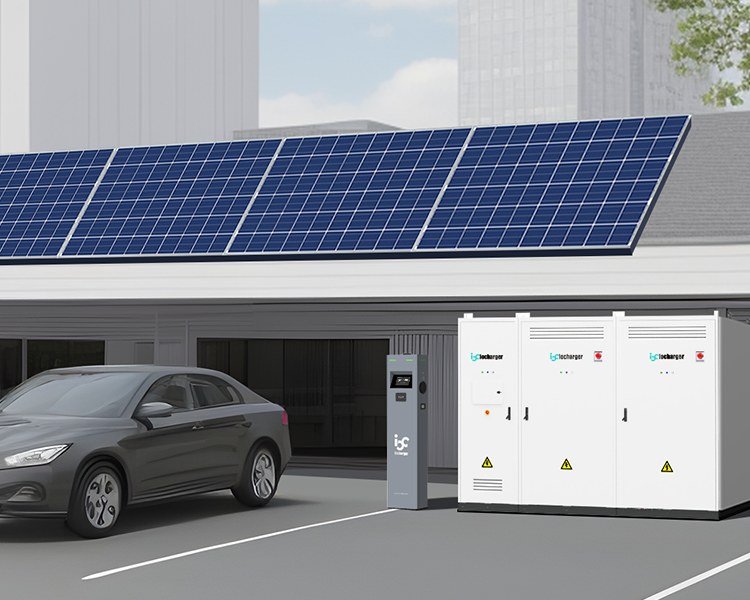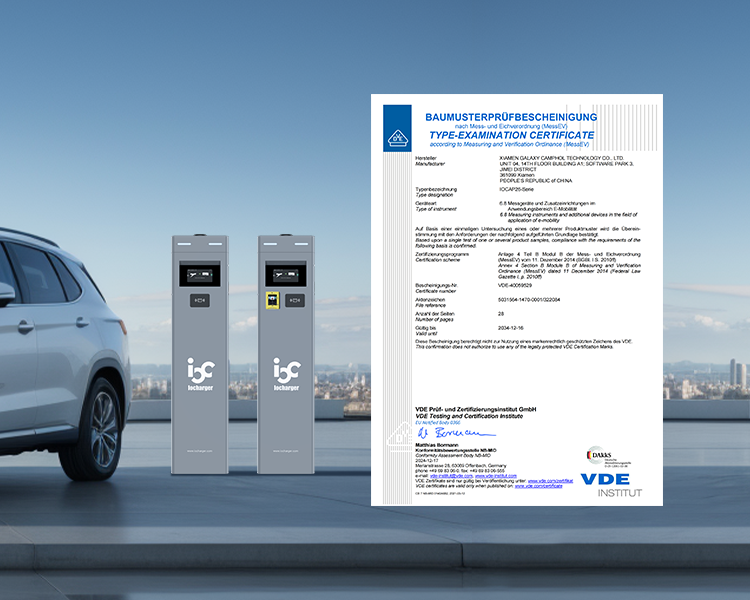
With the rapid expansion of electric vehicles (EVs) across Europe, Germany has positioned itself as a leader in setting stringent standards for EV charging infrastructure. For businesses investing in EV charging solutions, compliance with these regulations is crucial – not just to meet legal requirements but also to optimize operational costs and maximize return on investment (ROI).
In this blog, we’ll explore the significance of energy-efficient EV chargers, analyze Germany’s strict regulatory landscape, and discuss the future trends shaping the country’s EV charging infrastructure.
Why Energy-Efficient EV Chargers Matter
As EV adoption accelerates, energy efficiency in charging infrastructure is becoming a key factor in cost reduction and environmental sustainability. Here’s why businesses should prioritize it:
- Lower Operating Costs Energy-efficient chargers reduce electricity waste, minimizing operational expenses for businesses, fleet operators, and charging network providers.
- Sustainability Compliance Germany’s commitment to carbon neutrality means low-energy-consumption chargers align with national sustainability goals and attract incentives.
- Grid Stability & Smart Energy Efficient chargers help balance grid loads, preventing peak-hour stress and enabling smart energy distribution.
- Higher ROI Investing in energy-efficient charging solutions leads to lower energy bills, longer-lasting hardware, and compliance-driven incentives-maximizing financial returns.
Navigating Germany’s EV Charging Regulations
Germany enforces the strictest EV charging regulations globally, ensuring safety, efficiency, and seamless user experience. Businesses must comply with the following key standards:
AFIR (Alternative Fuels Infrastructure Regulation)
Effective from April 2024, requiring public chargers to support contactless payments and standardized pricing transparency.
Ensures consistency across the EU, making EV charging more accessible and user-friendly.
Eichrecht (Calibration Law)
Mandates precise measurement and transparent display of electricity consumption.
Ensures certified billing accuracy, preventing overcharging and enhancing consumer trust.

ISO15118 (Plug&Charge)
Enables seamless authentication where EVs automatically communicate with the charger without manual payment input. Enhances security, streamlines transactions, and improves user experience.
Learn more about iocharger ISO15118 Plug&Charge charging solution.
Renewable Energy Integration
Incentives for solar-powered and battery-backed chargers encourage the use of renewable energy.
Supports Germany’s goal of carbon neutrality by 2045.
Non-compliance can result in penalties, legal risks, and additional operational costs, making adherence essential for business success.
The Future of EV Charging in Germany
Germany’s EV charging infrastructure is evolving rapidly to meet rising demand. Here are key trends shaping its future:
- Nationwide Expansion & Fast Charging. The government aims to install one million public chargers by 2030, prioritizing high-speed chargers along highways and urban centers.
- Battery-Integrated Charging Solution to address grid congestion, more chargers will feature integrated battery storage, allowing stockage de l'énergie during off-peak hours and deployment during high-demand periods.
- Smart Payment & Digitalization. AI-powered energy management will optimize charging schedules and reduce costs. Contactless payments and Plug & Charge technology will dominate the market for a seamless experience.
- Renewable Energy-Powered Charging Hubs. More solar-powered charging stations will emerge, lowering operational costs and improving sustainability. Battery storage combined with renewables will provide off-grid solutions in remote areas.
- Stricter Regulations & Standardization. Expect even stricter energy efficiency standards and greater standardization across all chargers as the market matures.
Germany’s EV charging market is expanding rapidly, but regulatory compliance and energy efficiency are key to cutting costs and maximizing ROI. Businesses investing in the right EV charging solutions that meet Eichrecht, AFIR, and ISO 15118 standards will gain a competitive edge while supporting a sustainable future.
To succeed in Germany’s evolving market, focus on:
- High-efficiency chargers that reduce energy waste
- Regulatory compliance to mitigate legal and operational risks
- Smart grid integration for cost and energy optimization
- Future-proof solutions incorporating renewable energy and digital payment systems.
The transition to an all-electric future is inevitable. Is your charging solution ready for Germany’s evolving market?
Looking for energy-efficient EV chargers that meet Germany’s highest standards? Contact us today to explore customized solutions for your business!
